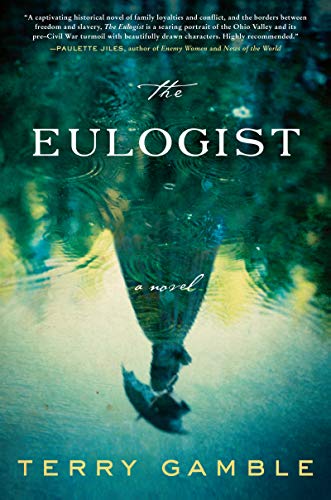The Eulogist
Having lost claim to their holdings in Northern Ireland, the previously landed Givens family makes their way to the United States in 1819. Things start off poorly and spiral steadfastly downward. The daughter, Olivia, narrates throughout from her quite opinionated point of view. Arriving in Cincinnati, their mother tragically dies after losing a stillborn infant and their father leaves them to make his own way elsewhere. Older brother James tries to provide for his sister and younger brother Erasmus by working at trivial jobs. Eventually, through entrepreneurship, he marries well, enabling a relatively comfortable lifestyle. Erasmus, handsome, undependable and a womanizer, tries his hand as a traveling preacher. Olivia, seemingly destined for solitude, surprisingly weds an eccentric homespun doctor and scientist who she appreciates more for his intellect than anything like love. She finds her true purpose in assisting slaves in escape to freedom in the north.
Billed as “emotionally resonant” and the “endeavors of one Irish American Family,” the novel is certainly emotional. However, the narrator herself says “we were Scots” and Calvinists and eschews anything to do with the native Irish and Ireland, calling it a “boggy land from the past.” Not for the faint-hearted, the book features graphic dissection of stolen corpses, a terrible rape, and an equally disgusting botched abortion. The reader is continuously informed that slavery was hideous, Southern slave-owning families were awful, and fundamentalist Protestant sects were… well, fundamentalist. None of the main characters was particularly admirable or attractive to me, but some of the slaves and a German Jewish spectacle maker were fleetingly appealing.
Still, the book reads quickly with no dull chapters nor meandering, a tribute to the author’s masterful way with words. It also features a surprise ending which must be deciphered through discerning a challenging convolution of illicit relationships. Not my preference, but I’m sure there is an audience for this style of historical novel.










